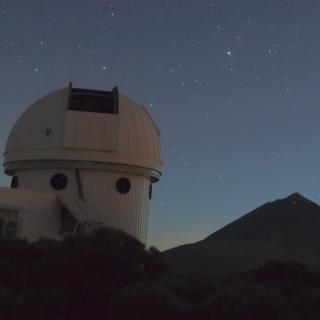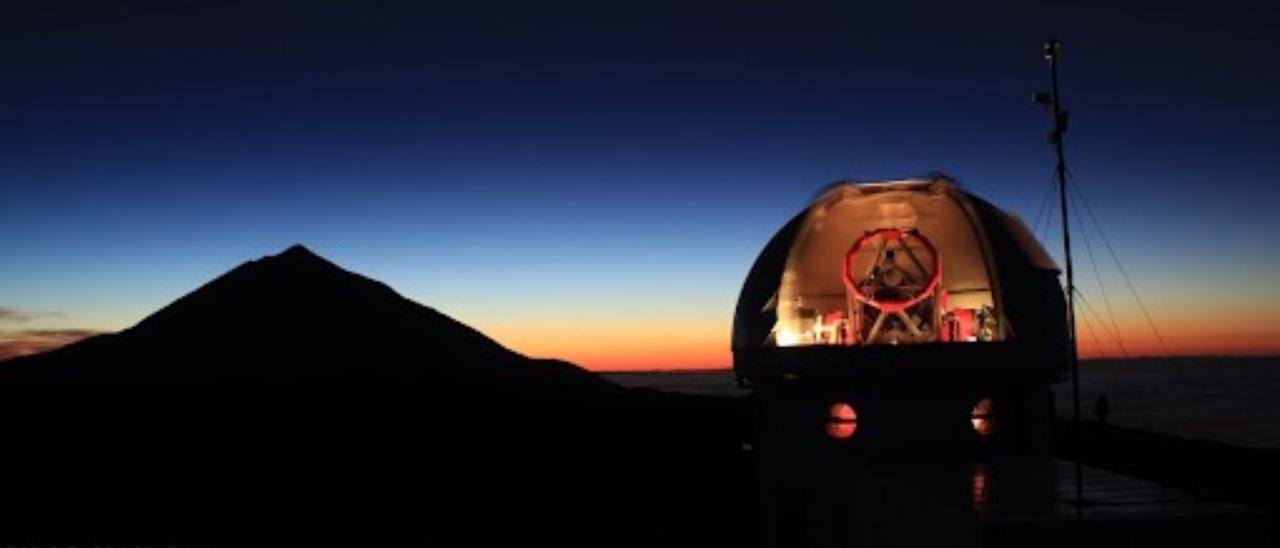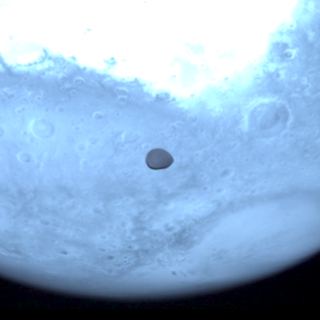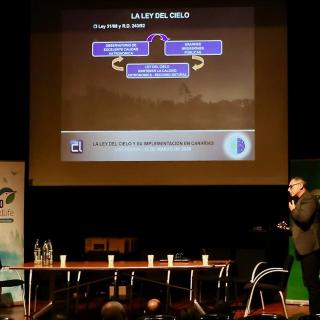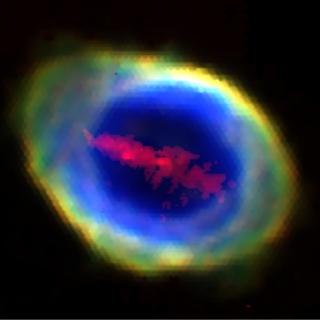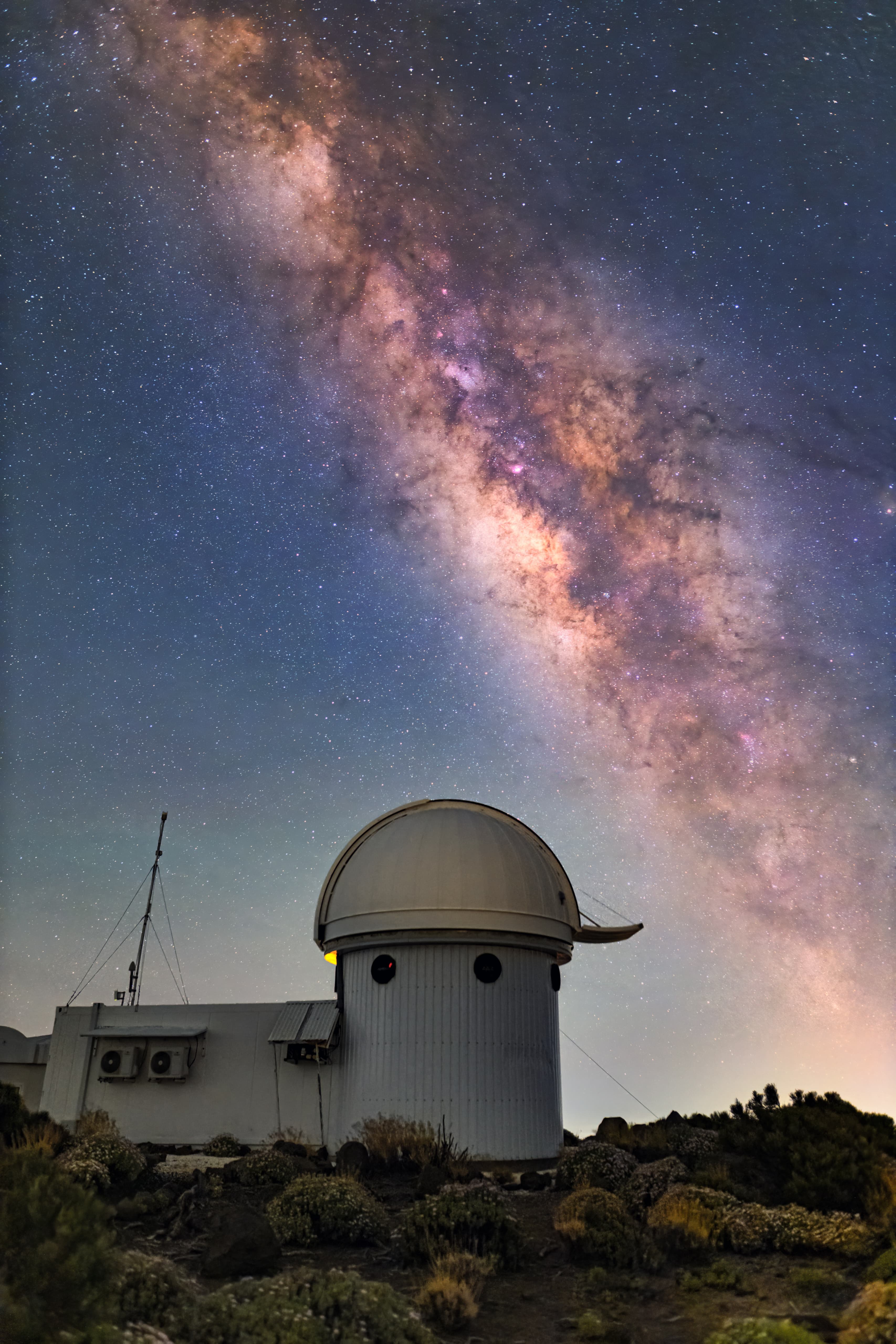
The Instituto de Astrofísica de Canarias (IAC) is hosting during this week the Second SONG Scientific Conference, which brings to an end the first decade of high level studies with this international network designed to study the interiors of the stars and the planetary systems which orbit them.
The meeting, which will take place at the headquarters of IACTEC in La Laguna from the 18th to the 20th of September, brings together over 50 scientists from Europe, the United States, Australia, and China with the aim of discussing the updating of the most advanced techniques of time resolved spectroscopy in the field of stellar astrophysics.
The Stellar Observations Network Group (SONG) is an internaitonal collaborative project in which there are three telescopes, each with primary mirrors of 1 m diameter, completely robotic. The network started to work continuously in 2014 with the first telescope at the Teide Observatory in Tenerife. Since then two further telescopes have been added to the network: at Lenghu (China) and Mt. Kent (Australia). Nest year the building of a fourth node at the Apache Point Observatory (United States) will be completed, and this will join the operations of the network. The aim of this networking is to maximize the length of night-time observing by combining the individual telescopes distributed aroudn the world, offering continuous uninterrupted observation.
“With the four SONG nodes working like a single instrument son we will be able to observe a star without interruptions, for weeks at a time”, explains Jørgen Christensen-Dalsgaard, Emeritus Professor at the University of Aarhus (Denmark) who is the principal investigator on the SONG project, and who will talk during the meeting.
The light emitted by a star, at whatever wavelength, is virtually the only objective entity which allows astronomers to study it using different techniques, such as spectroscopy, which is the technique for analyzing the spectra emitted by a star so as to study its physical properties.
The SONG network of telescopes is specialized for the spectroscopy with time resolution of bright stars, many of which can be seen with the naked eye. One of the keys of this network is the study of the modes of oscillation of the stars: asteroseismology. This means, just as seismology on Earth lets us get a better understanding of the internal structure of our planet, asteroseismology allows us to study the internal structure and dynamics of the stars by analyzing the periodic variations of the light from the star’s atmosphere. In addition, precise measurements of the spectra are crucial for the study of exoplanets and their host stars.
In coordination with the observations carried out with NASA’s TESS space telescope, SONG provides spectorscopic data which offers a view of the starswhich cannot be obtained in any other way. “As well as its present contribution, SONG will play a basic role in the spectroscopic studies related to the scientific objectives of PLATO, the next ESAmission, an important initiative in which the IAC is deeply involved” states Pere Lluis Pallé, Research Professor at the IAC in charge of the project at the Teide Observatory.
The Canaries, Science and Culture.
The programme of activities of the conference includes a visit to the Teide Observatory and to the National Park, where experts from the IAC and the University of La Laguna (ULL) will offer the visitors a perspective on the geologyof he zone, and will talk about the mos recent research on the Guanches, the pre-hispanic population of Tenerife.
“The Second Scientific Reunión of SONG is not only an opportunity to bring together stellar astrophysicists to interchange their results, techniques and ideas, it will also celebrate a decade of continuous scientific production since the first node of SONG was installed in Tenerife, and its subsequent growth”, says Paul Beck, the main organizar of the meeting, who is a Ramony Cajal Fellow in Astrophysics at the ULL and the IAC. “We are delighted to offer the international participants a view of the astronomical installations and the cultural context of the Canary Islands which goes beyond astrophysical collaboration”, adds Beck.
This meeting has financial support from the Ministry of Science, Innovation, and Universities, the University of La Laguna, and the Instituto de Astrofísica de Canarias.
Contact with the organizeers:
Email: song24 [at] iac.es (song24[at]iac[dot]es): Dr. Paul Beck (English, German), Dr. Pere L. Pallé (Spanish, English)
Meeting webpage: https://meetings.iac.es/song24/
